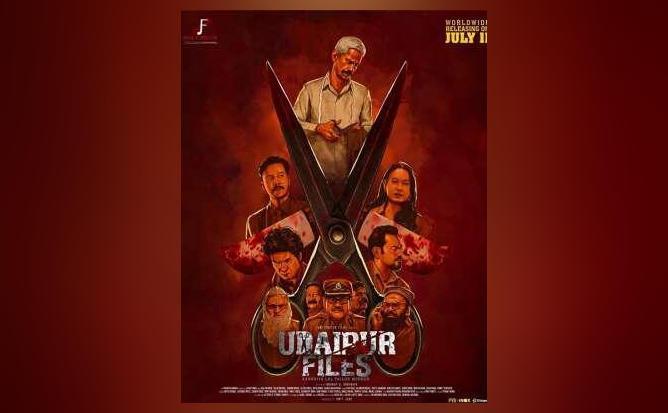
CBFC Makes 150 Cuts to Vijay Raaz-starrer ‘Udaipur Files’
In a shocking turn of events, the Central Board of Film Certification (CBFC) has ordered 150 cuts to the upcoming film ‘Udaipur Files’, which is based on the 2022 murder of tailor Kanhaiya Lal in Rajasthan. The film, which features actor Vijay Raaz in the lead role, was slated for release on July 11, but now, its fate hangs in the balance as a petition has been filed in the Delhi High Court seeking a stay on its release.
Directed by Tejas Prabha Vijay Deoskar, ‘Udaipur Files’ is a thriller that delves into the brutal murder of Kanhaiya Lal, who was killed by two men, Riaz Akhtari and Mohsin Alams, in a horrific attack that sent shockwaves across the country. The film aims to explore the events leading up to the murder and the subsequent investigation that followed.
However, the CBFC has deemed that the film requires significant cuts to ensure that it meets the board’s guidelines and standards. The exact nature of the cuts has not been disclosed, but it is believed that they are related to the film’s depiction of violence, religion, and communal tensions.
The decision to order 150 cuts has sparked controversy, with many questioning the CBFC’s motives and the potential impact of the cuts on the film’s artistic integrity. The film’s director, Tejas Prabha Vijay Deoskar, has expressed his disappointment and frustration at the CBFC’s decision, stating that the cuts will fundamentally alter the film’s narrative and tone.
“We are deeply disappointed with the CBFC’s decision to order 150 cuts to our film,” Deoskar said in a statement. “The cuts will fundamentally alter the narrative and tone of the film, which is a nuanced and sensitive portrayal of a tragic event. We believe that the film is not promoting any communal tensions or violence, but rather, it is a thought-provoking and responsible exploration of a complex issue.”
The petition filed in the Delhi High Court seeks a stay on the release of the film, citing concerns over its potential impact on communal harmony. The petition claims that the film’s depiction of religious and communal tensions could exacerbate existing social divisions and create unrest in the country.
The petition has been filed by a group of individuals who claim that the film’s release could lead to “social unrest, communal tension, and even violence”. The petitioners argue that the CBFC’s decision to certify the film is “arbitrary and unreasonable” and that the film’s release could have “serious consequences for the country”.
The controversy surrounding ‘Udaipur Files’ is just the latest example of the challenges faced by filmmakers in India, who often struggle to balance artistic expression with the demands of the CBFC and the sensitivities of the audience.
In recent years, several films have been mired in controversy, with some being banned or heavily censored by the CBFC. The board’s guidelines are notoriously strict, and filmmakers often find themselves walking a tightrope between creative expression and the need to appease the censors.
The case of ‘Udaipur Files’ is particularly sensitive, given the traumatic events that the film is based on. The murder of Kanhaiya Lal was a shocking and disturbing event that sent shockwaves across the country, and many are concerned that the film’s depiction of the event could be insensitive or provocative.
However, the film’s director and cast have maintained that the film is a responsible and nuanced portrayal of a complex issue, and that it is not intended to promote any communal tensions or violence. The film’s star, Vijay Raaz, has also spoken out about the controversy, stating that the film is a “powerful and thought-provoking” exploration of a tragic event.
As the controversy surrounding ‘Udaipur Files’ continues to unfold, it remains to be seen whether the film will be released as scheduled or if the CBFC’s cuts will be implemented. One thing is certain, however – the case has sparked a much-needed debate about the role of censorship in Indian cinema and the need to balance artistic expression with the sensitivities of the audience.






